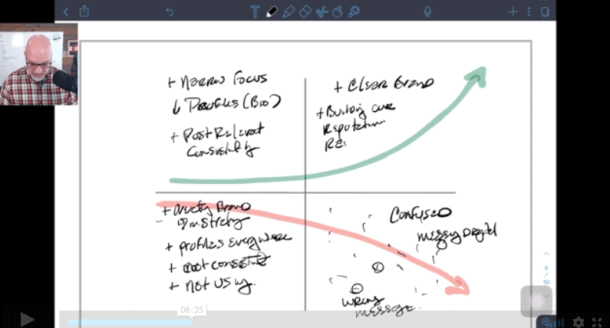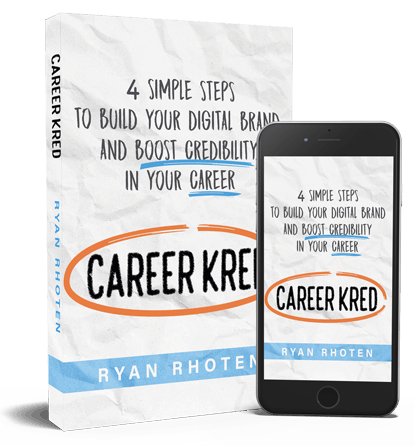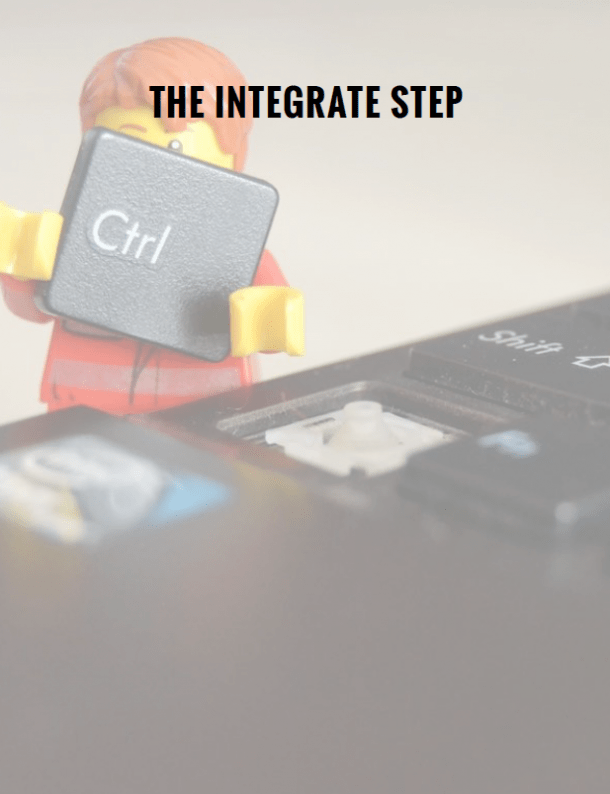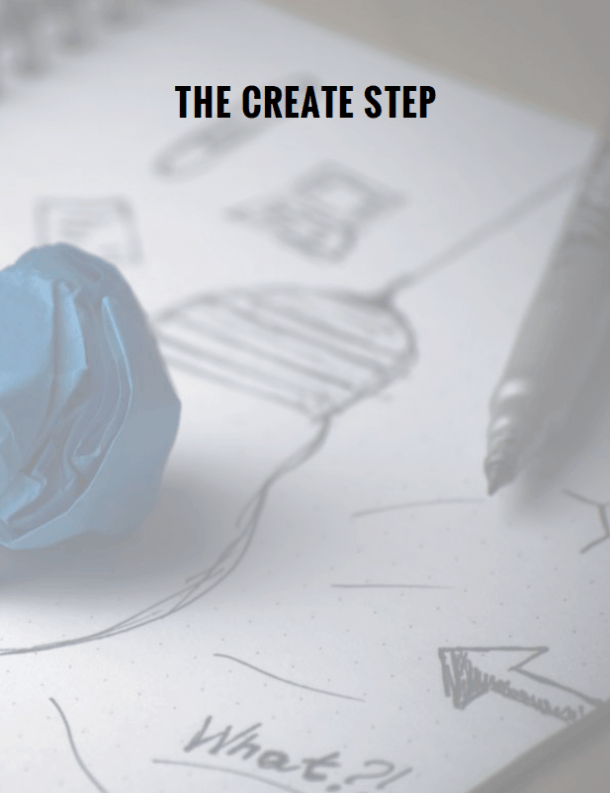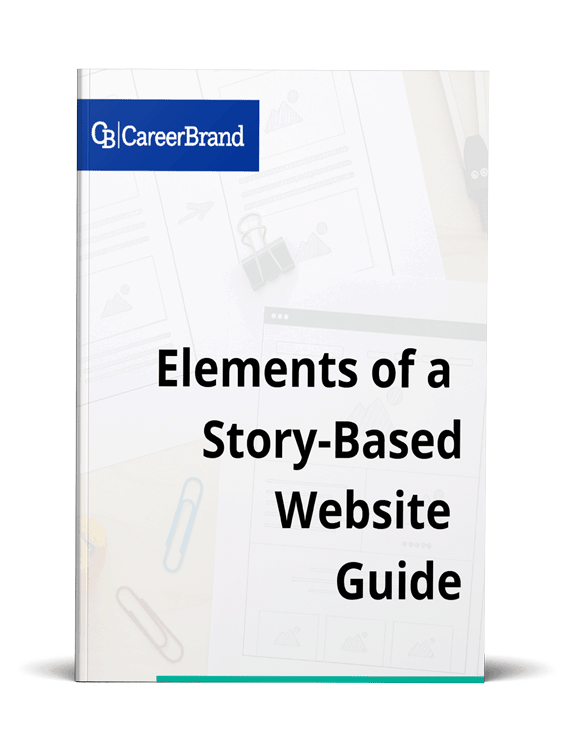“Ok. But what should I put on it?” I get asked this question a lot. Whether in conversation or during a podcast interview, people want to know what they should put on their own website.
This time, the person asking was a photographer. She already had a website for her business but I had suggested she start one for herself. Let me explain.
In the age of the Internet, a website is a critical tool for both businesses and individuals. As an individual, a website allows you to control what people find about you online. In addition, it can serve as a one-stop-shop for all things YOU. If used properly, it can also give you a leg up on your competition.
The problem that most people have with starting a website is not as much the technical stuff (I can help with that) it’s the “what”. As in, “what”, should you put on your website.
The answer, like many other things in life, is simple but it’s not easy. I like to think of the “what” as falling into one of three high-level categories. The one you choose really depends on how you would like your site to be used; what you want people to find when they search for you.
PROFESSIONAL
I’m still surprised at how many Gen X’ers don’t have a personal website. Sure they’ve jumped on the Facebook bandwagon in order to keep up with their high school buddies, but this can actually be detrimental them depending on how they use it.
Most people I’ve seen, use it like a substitution for a good psychologist.
Regardless of your Facebook prowess, we are all professionals. As professional, we all have a brand identity. We all have a personal brand.
I think everyone agrees that all businesses should have a website but you don't need to be a business person or a business entity to have a website.
I’ll also go out on a limb and suggest that a vast majority would also agree on what a business should put on their website. But what about you? As an individual career professional, what should you put on your website?
First off, your website can be used as an online resume, albeit a supercharged one. If done correctly, it can be used to highlight HOW you accomplished the things you list on your resume.
It can provide insight into your thought processes, your methodologies, and your ability to lead, guide, direct and serve others. When used in this manner, you are not only amplifying your resume, you are also building your personal brand and enhancing your online reputation.
Wouldn't you agree, this would be far better for someone to find when they search for you vs. random pictures in Instagram?
Your can also use your website to highlight your thoughts on various topics. Have an opinion about your industry? Write a blog post about it. Have a thought about a new technology?
Write about it. The topics you choose to discuss on your website (or write a blog about) can even help people see you as an expert on a topic. Write about a specific topic often enough, you might just find yourself being looked to as a thought leader.
I know you're not an expert, right? Well before you decide let's take a look at what an expert actually is.
“A person who has a comprehensive and authoritative knowledge of or skill in a particular area”
Do you have comprehensive knowledge of a particular skill in a particular area? I'm betting you do.
HOBBIES AND PASSIONS
Is there something you are passionate about? Something that you do outside your day job, that other people come to you for advice on? If so, start a website about that topic.
That happened to be what my photographer client and I were discussing. You see she is an apiarist (beekeeper) in her spare time. She is an expert.
She was telling me during one of our sessions about how she wanted to find more time to spend with her bees. She also let it slip that she was already being sought out by people for advice and suggestions about beekeeping.
She had gotten started two years prior and in that time she had gained a lot of knowledge about the “sport”.
Thing was, she didn’t consider herself to be an expert despite having comprehensive knowledge on the topic of bees that others just getting started needed. Her problem was with the word “authoritative”. To convince her otherwise, we took a look at the definition of authoritative.
“Able to be trusted as accurate or true; reliable; likely to be respected and obeyed”
She already had people coming to her for advice because she had comprehensive knowledge of her subject matter. She was trusted and people were doing what she was telling them. She is an expert.
That's why I told her to start a personal blog. In this way, she would begin to grow her online brand as an expert on her chosen topic.
You see, that’s the thing about the internet; a little bit of knowledge on your part can go a long way. A friend of mine put it this way.
“Even if you are a 5 on a scale of 10, the 4’s and below will look to you for advice”.
The internet has normalized us all but not everyone knows this. Sure there are rock stars out there. 12’s on a scale to 10. But there are a lot more 4 thru 1’s looking for advice from anyone above their current knowledge level.
You don’t need to be an “expert” to be perceived as one anymore. You just need to know more than your audience and gain their trust. They will, in turn, make you an expert.
ANYTHING YOU WANT
This might be obvious but you can really write a blog about; Any. Thing. You. Want. This is the real answer to the question “what should I write a blog about”. Since you own the website and you control the content, you really can put anything you want on your site.
If you want to create a website to document your life, your travels, your family, your children’s sporting events, your gnat collection; it’s all perfectly fine. Write about gnats enough, you will become the go to gnat expert.
There is one problem with this answer, though. People don’t like to hear it.
Why? because it’s too vague. Think about it. When you are new to something, you just want someone to tell you what to do. Without that guidance, most will choose to do nothing.
So I challenge you: go do something.
Just get started. Because the truth of the matter is that you won’t actually know what you want to do until you’ve done something for a little while. After you start, you will begin to figure out which of these three “categories” best fits you.
You may change your mind a couple of times and this is perfectly ok. At least, you’re doing something. At least, you got started.
Just remember, regardless of where you decide to start or ultimately where you end up, whatever you put out there, it’s out there forever. People will find it and someday you may need to defend it. Just be ready when that day comes.
Until then, go start a damn website already.
QUESTION: What will you put on your website? Do you have one already? Share the link below so others can see. It might just give them the kick in the arse they need to get started.
